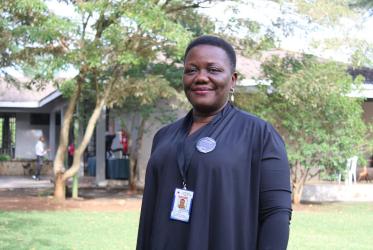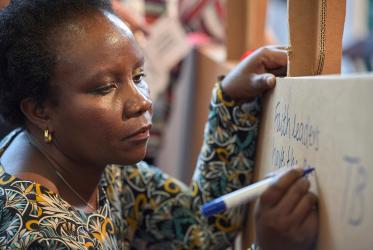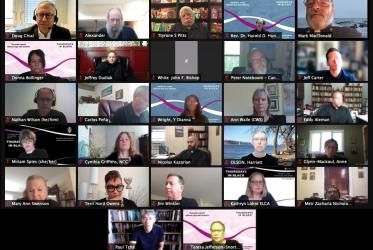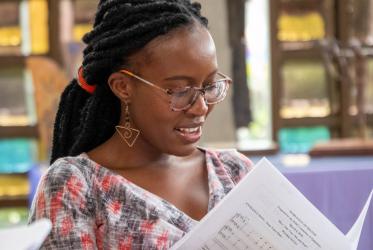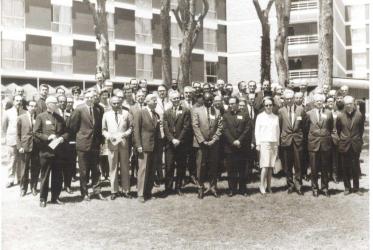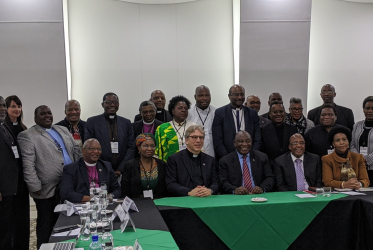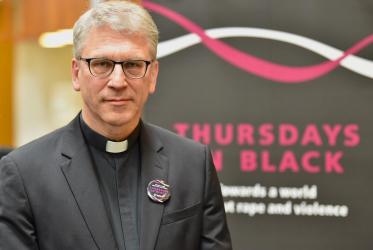Displaying 1 - 20 of 43
21 November 2023
Theological education in Africa promotes social transformation
03 November 2022
WCC honoured with Geneva Engage Award
01 February 2022
WCC delegation meets with South African President Ramaphosa
09 December 2019
Churches in southern Africa stand against violence, xenophobia
10 October 2019
UN day on violence victims stresses religious tolerance
22 August 2019



